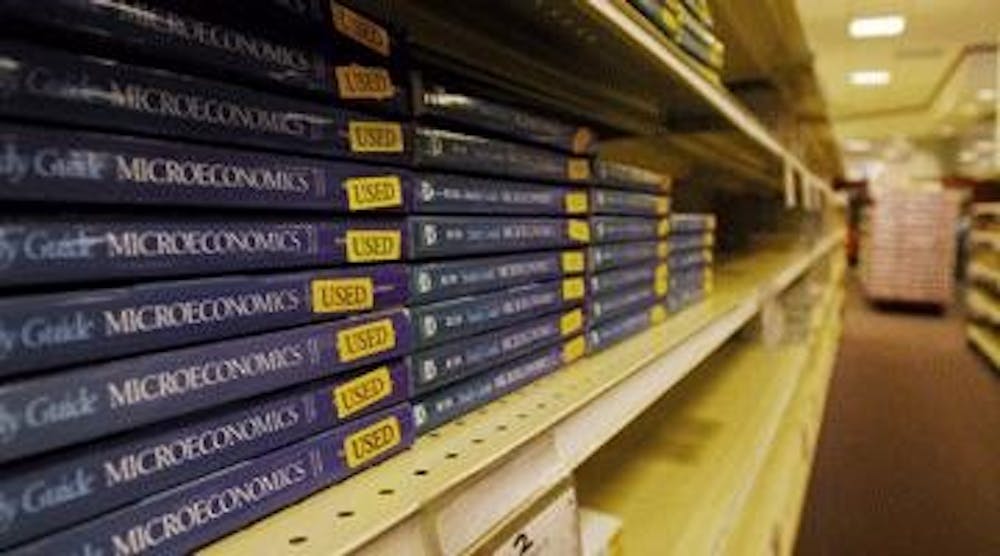A new copy of Oxtoby's Principles of Modern Chemistry costs $205 at the Penn Bookstore, and an electronic version is $103.99 at coursesmart.com. But some students get their copies for free - by illegally downloading them from file-hosting Web sites and peer-to-peer networks.
As technology improves and computer use surges, textbook publishers are navigating the digital age. They welcome innovations in electronic books, which are inching into the mainstream, but at the same time are forced to confront a growing trend of textbook piracy.
Pirated textbooks - copies of digital versions or scanned printed pages - are cropping up alongside perennial concerns about the high cost of hard copies. They violate copyright laws and sap publishers' profits.
Cengage Learning, a major education publisher, finds 200 to 300 of its titles online each month, said infringement and anti-piracy manager William Sampson. Cengage works internally and with other publishers to scour the Internet and send "take-down" notices to Web sites with copyrighted content.
Under the Digital Millennium Copyright Act, sites are not liable for illegally posted material if they respond promptly to removal requests.
Document-sharing site Scribd receives about one such notice per day, director of community development Jason Bentley said. The site removes material when informed of its illegality and closes accounts with more than two copyright violations.
Penn Law professor R. Polk Wagner said this one-by-one approach is unlikely to keep copyrighted material off the Internet, but it's the best that publishers can do.
"College students love free stuff," he wrote in an e-mail. "Some people will always try to avoid paying, even if it is wrong."
J. Bruce Hildebrand, the American Association of Publishers' director of higher education, agreed that some piracy is expected to evolve - like it has for music and movies - and does not indicate that textbooks currently cost too much.
"You can download a single tune and pay a buck, but some students prefer to download it for free," he said.
However, some students see file-sharing as a stand against the textbook industry.
The founder of Textbook Torrent, a file-sharing site shut down in July by its host for facilitating distribution of copyrighted content, told The Chronicle of Higher Education that its 64,000 users represented frustration with "monopolistic business practices."
But publishers say they offer lower-cost options to traditional texts, such as half-price e-books and IChapter.com, which lets students pay for only the chapters they need.
The industry is moving in a digital direction, said Bryce Johnson, whose CafeScribe Web site lets users buy e-books with features like highlighters and research tools.
"We have to give students an effective, reasonably priced mechanism to get material electronically," he said.
Increasing piracy reflects that momentum, Johnson added, but is not the answer.
"Hopefully students realize this is intellectual property," he said. "Although publishers do make money, there is a lot of hard work that goes into [the process]."



